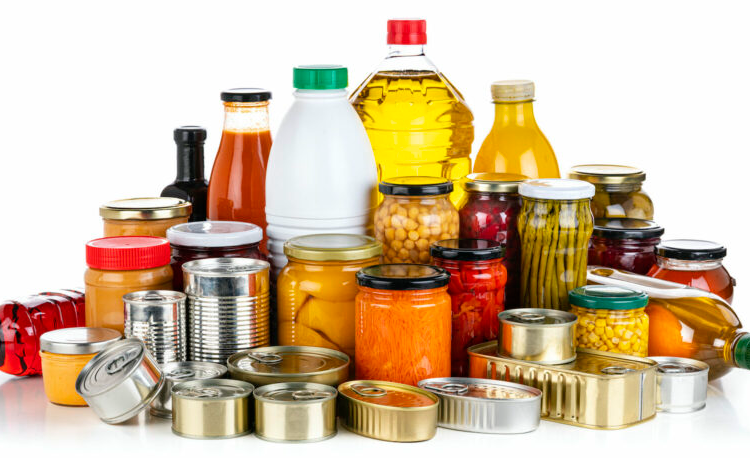Health experts and nutritionists have warned Nigerians to be more conscious about what goes into their bodies through their mouths.
In recent times, some parts of the northern Nigeria have been heavily infiltrated with unbranded and substandard monosodium glutamate (MSG), which health experts raised the alarm over their impending health implications.
What Is Monosodium Glutamate?
“Monosodium Glutamate” (MSG) is the sodium salt of glutamic acid, a flavour enhancer which has been used effectively for over a century to bring out the best flavours in food.
A nutritionist, Isah Kareem, warned Nigerians to be careful of a food culture of spicy and seasoned delicacies that is on the prowl, with an inviting aroma made in palatability for the adoption of monosodium glutamate used in cooking. He further warned that they were made with adulterated and unbranded food substances.
Kareem, who lamented that in many instances, people, including the educated don’t pay attention to what they eat, drink and inhale. This dangerous lifestyle, according to him, has led some folks to be admitted to hospitals where they have had to spend fortunes to regain their health.
He said, ‘‘As delicious as this combination may sound, there is danger in the abuse of unbranded monosodium glutamate by merchants who are hell-bent on forcing unhealthy foods into the bodies of people. These unbranded monosodium glutamates are sold in the open from uncovered sacks and in measurements to unsuspecting buyers who have chosen quantity over quality.
He said, ‘ Brands approved by National Agency for Food and Drug Administration and Control, NAFDAC like Ajinomoto, Veda,and others, packed in sachets and sold in healthy sizes are good, but these unbranded types are the opposite. The alarming part is that their manufacturers cannot be traced to check for their authenticity. More worrisome is that they are sold on the cheap which could be a signifier of their being substandard and unhealthy for human consumption.’’
Another health expert, Foluke Ojo said an ordinary day in the market would leave a buyer’s mouth agape at the frightening volume of substandard products across the food chain coming under various brand names and claiming to be as superior as renowned brands.
She said, ‘‘The infiltration, which has been going on for a long time. Regulatory NAFDAC, and Standard Organisation of Nigeria, SON, have been leading from the front in curbing the menace of substandard and fake products in the market. They have been doing this in their regulatory roles with a focus on quality, distribution, sales and use of products.
‘‘Also, they embark on advocacy campaigns and market storms which on some occasions led to the apprehension of some producers of these sub-standard or fake products. Sometime in 2021, a sad event happened in Kano where three persons died having consumed an adulterated flavoured drink. Tests conducted by NAFDAC on the adulterated drinks revealed the addition of dangerous chemicals as additives to the flavoured drink. Further findings by the Agency also revealed only two of the five flavoured drinks identified in the unfortunate incident were registered in NAFDAC’s database, the other three were not.’’
Experts said that in light of these happenings, the average Nigerian needs to pick up where NAFDAC left off by ensuring that the products they are buying have NAFDAC approval.
‘‘As much as many may desire to buy cheap and in large quantities, remember you may be compromising your health. It is pertinent to verify important details such as date of production, expiry date, brand name, NAFDAC approval, among other vital information. As stated earlier, the responsibility does not belong to NAFDAC, SON and other regulatory bodies alone, every Nigerian must look out for themselves and their fellow citizens to avert this looming health hazard. Food vendors should be conscious of the health of their customers by using standard branded products in their cooking, same goes for households- wives, and housekeepers should not play games with the health of their family members,’’ an Abuja-based medical doctor, Uche Eke, said.
Speaking further she said, ‘‘If we all could imbibe the saying. You are what you eat whenever we visit the market, we would save many from serious health issues by shouting down the merchants of unbranded monosodium glutamate, the sellers of fake/substandard drugs, the sellers of adulterated flavoured drinks, bottle water among other items that serve as refreshments.
‘‘You are what you eat’ is a very common saying that prioritizes the importance of eating good food in order to stay healthy and fit. Due to the awareness created by nutritionists and health experts, people are changing the way they think about food, becoming more conscious about what goes into their bodies through their mouths. However, as much as this awareness is gathering momentum and they would love to eat healthily, it is an indubitable fact that in the face of economic hardship, many are succumbing to substituting quantity for quality.’’
She called on Nigerians to consider the fact that the responsibility does not belong to NAFDAC, SON and other regulatory bodies alone, as they must look out for themselves and their fellow citizens to avert this looming health hazard. Food vendors should be conscious of the health of their customers by using standard branded products in their cooking, the same goes for households – wives, husbands, and housekeepers should not play games with the health of their family members.











